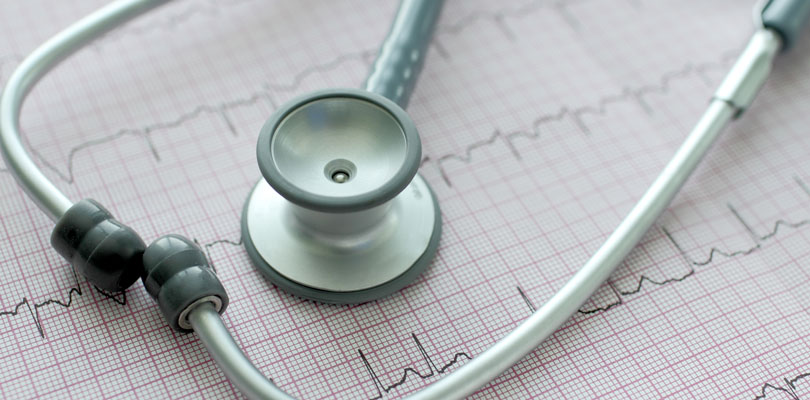
Photo Credit: sudok1 / iStockPhoto.com
Know These Common AFib Symptoms
Atrial fibrillation (AFib) is a heart arrhythmia that is more prevalent than you think — according to Harvard Health, there has been documentation of AFib for more than 4,000 years and 2.3 million to 5.1 million Americans are affected by this heart condition.
Not only that but it is costly — it results in 400,000 hospitalizations annually, with over 5 million doctor’s visits.
Healthcare costs associated with AFib are upwards of $6.5 billion — yes, billion — annually.
Chances are if you have heard of AFib, you know of someone who has had a stroke because of it — AFib and stroke are unfortunately linked. Luckily, AFib is treatable, so knowing the symptoms and receiving treatment promptly can reduce the risk of stroke and premature death.
Continue reading for a list of the most common AFib symptoms.
1. Fluttering Sensation in the Chest
The fluttering sensation is a result of the irregular and/or rapid heartbeat. AFib can cause the heart to beat very rapidly, but the heartbeat is always irregular.
Due to the irregularity, you may notice that your heart rhythm feels different than it usually does.

2. Shortness of Breath
The heart isn’t beating at its full capacity when you have AFib. Because of this, it may be possible that you feel shortness of breath with daily activity. This is especially likely if you are exercising and if the heart rate is elevated.

3. Fatigue
According to the American Heart Association, “Oxygen-rich blood is not being delivered to the body and brain, causing physical and mental fatigue and reduced stamina.”
Fatigue is a symptom of many other health conditions, though, so if you are feeling fatigue coupled with any of the above or below listed symptoms, it must be discussed with your healthcare provider.
There is currently no cure for pulmonary hypertension, but there are several pulmonary hypertension treatment options that can help relieve symptoms.

4. Exercise Intolerance
Exercise intolerance is a fairly typical symptom associated with AFib — the heart is not beating effectively and the body is fatigued already due to a lack of oxygen-rich blood. Exercise may make the heart beat more rapidly, may increase fatigue and may cause an increase in shortness of breath.

Photo Credit: Juanmonino / iStockPhoto.com
5. Lightheadedness and Fainting
Lightheadedness and subsequent fainting can result as AFib progresses. The aforementioned symptoms are typically in earlier stages of AFib — often even before AFib is diagnosed.
Lightheadedness and AFib are common as the heart becomes weaker and occurs when the blood pressure decreases rapidly due to AFib.
If you notice these symptoms you should speak with your healthcare provider immediately.
How acute the symptoms are at the time dictates where you seek treatment. If the fluttering in your chest is associated with chest pain, lightheadedness and/or a rapid heart rate, seek emergency medical attention immediately. AFib may also be associated with other heart conditions, such as coronary artery disease, so angina or a heart attack may occur at the onset of AFib.
If symptoms are otherwise mild, call your primary care physician — but call urgently. Although treatment may not be emergent, it should still be started imminently.
Because the atria are not pumping effectively, blood pools in the heart, which increase the risk of blood clots, which increase the risk of strokes. Beginning treatment means starting on an anticoagulant to reduce the risk of a stroke and it should not wait.
Congestive heart failure is a heart condition that causes symptoms of shortness of breath, weakness, fatigue, and swelling of the legs, ankles, and feet.







